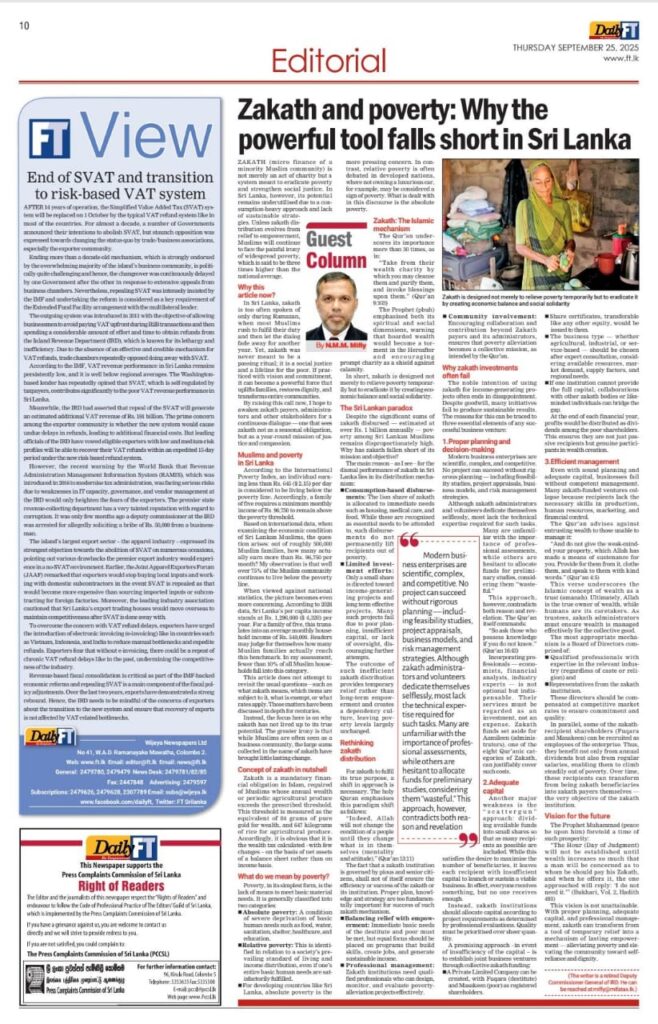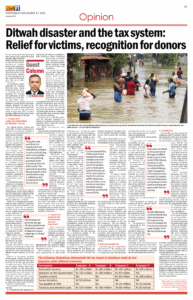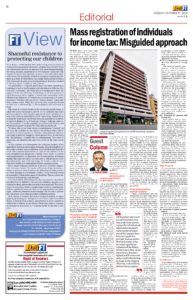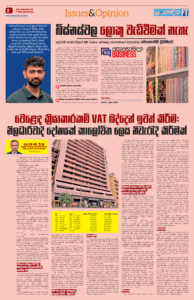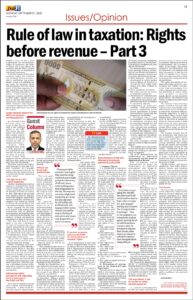Every year, Sri Lanka witnesses the collection of over a billion rupees in Zakat, yet there remains a concerning prevalence of poverty within the Muslim community. This paradox presents an opportunity for deep reflection, especially for a community celebrated for its entrepreneurial spirit and generosity. We must ask ourselves an important question:
How can we better align Zakat with its noble purpose?
In this enlightening article, I explore several key areas:
- The gap between Zakat’s spiritual intentions and its current management practices.
- The pressing issues of inefficiency, lack of transparency, and the need for consistent professional systems that limit its impact.
- The vital necessity for innovative, data-driven, Shariah-compliant strategies that can transform Zakat from a passive form of charity into a powerful mechanism for promoting economic justice.
This isn’t just a critique—it’s a heartfelt invitation to rethink, revitalise, and truly honour Zakat’s fundamental Islamic principles for a brighter future.

